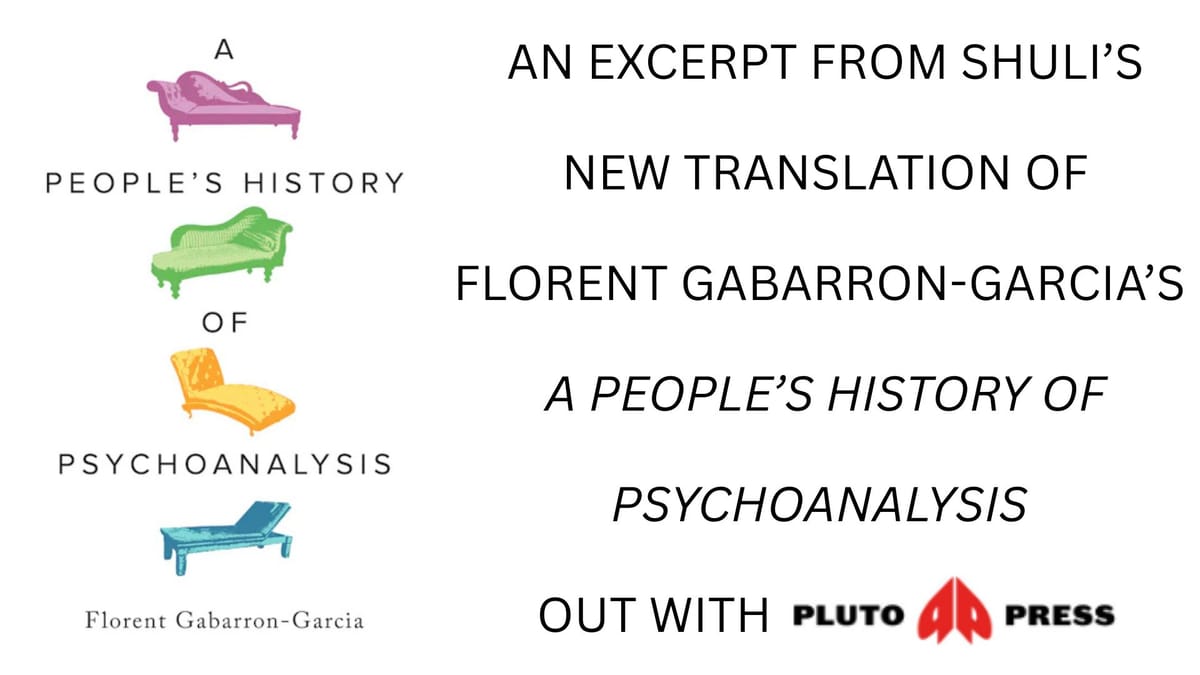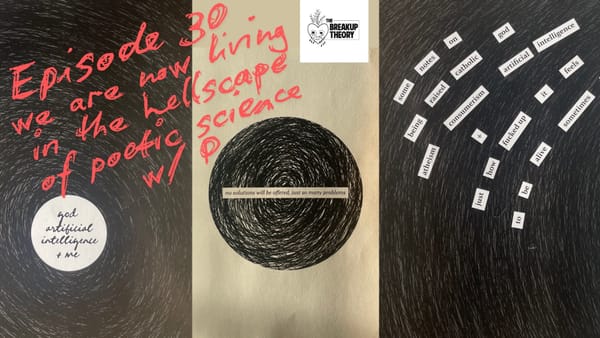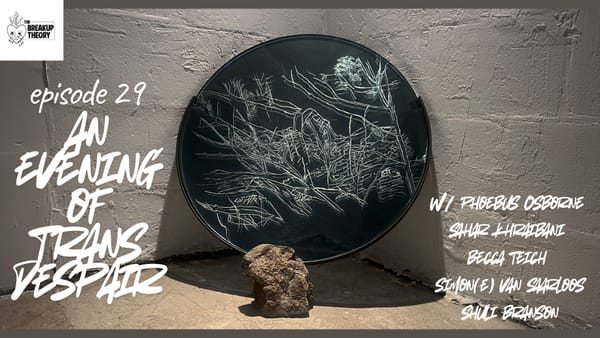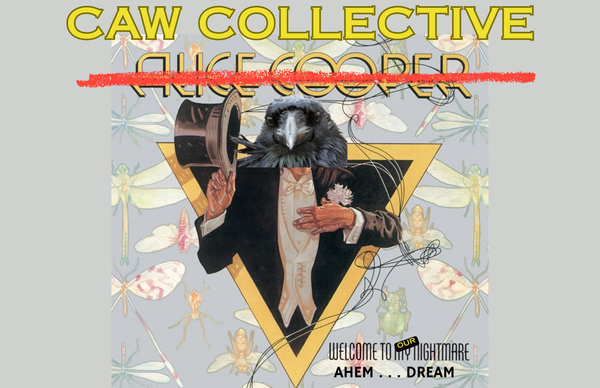an excerpt from Florent Gabarron-Garcia, A People’s History Of Psychoanalysis, trans. Shuli Branson (Pluto Press, 2025)

We are sharing the introduction from the recently published A People’s History of Psychoanalysis by Florent Gabarron-Garcia (Pluto Press, 2025) translated by Shuli.
The book sketches a path, from Freud to the Sozialistisches Patientenkollektiv (Socialist Patient’s Collective) in West Germany, to demonstrate that psychoanalysis has a rich history of left political engagement, not only in treating the working class, but also understanding that the issues patients sought to address were not simply inherent mental problems or inherited family drama, but products of the capitalist economic system. As Gabarron-Garcia shows, psychoanalysis is not the “neutral science” that Freud eventually came to promote, particularly with the nudging of the British psychoanalyst and Freud biographer, Ernest Jones, who eventually pushed psychoanalysis to accommodate to the Nazis. Even choosing to be apolitical is a political choice. But there have always been antifascist analysts from the early days of the Soviets to anarchist Barcelona in the 1930s and onwards.
In the introduction, Gabarron-Garcia presents his case against the reactionary forces of the psychoanalytic establishment, and gives a quick overview of the figures he presents in the book.
You can get the book here. Thanks to Pluto Press for letting us reproduce it.
Notes at the bottom of the page.
INTRODUCTION
Towards a Political History of Psychoanalysis
The myth of a neutral psychoanalysis is completely misleading. The strength and fruitfulness of politicized psychoanalysis proves this, whether in the 1920s— largely “forgotten” today even though supported by Freud himself—or in the 1970s, generally regarded with contempt but connected to the earlier era. But even beyond these two paradigmatic times, we will show that a political view is in fact integral to psychoanalysis, including—perhaps above all—when it claims to escape politics and founders in psychoanalism.
As shocking as it might seem for many analysts today, Freud defended a progressive, optimistic political vision in practice, even one sympathetic to communism at least until 1927. (1) This vision was widespread among analysts (2); it was pursued by many of them long after Freud. In the 1920s, the little-known cutting-edge experiment of Vera Schmidt and her home for children in Bolshevik Russia, which revolutionized the psychoanalysis of children, drew great interest for Freud and his collaborators. Schmidt’s work had no equivalent in western Europe and served as an example for many analysts.





